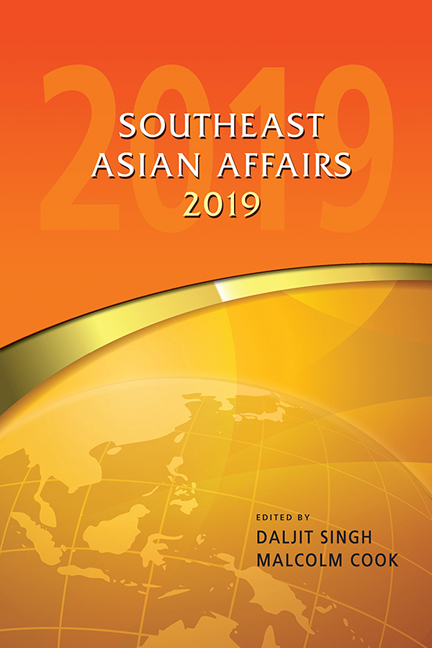Timor-Leste in 2018: An Eventful Year Ends in Tension
from TIMOR-LESTE
Published online by Cambridge University Press: 07 September 2019
Summary
From 25 January, when the president announced an early election for 12 May, it was clear 2018 would prove an eventful political year in Timor-Leste. The May election followed a nine-month Fretilin-led minority government that proved unable to steer its programme and budget through parliament, as the opposition parties formed a majority bloc a month after the government was installed. The election brought the Xanana Gusmão–led Alliance for Change and Progress (AMP) coalition back into office. Having taken power, the new government soon found itself mired in a standoff over ministerial appointments with the president, Fretilin's Francisco Guterres, in the first genuine experience of cohabitation under Timor-Leste's semi-presidential system. The year also saw an historic agreement between Timor-Leste and Australia that fixed maritime boundaries at the median line in the Timor Sea, thus ending a long-running dispute between the two nations. The year was capped off by the government outlining its bold vision for resource sovereignty, and its plan to purchase a majority share in the Greater Sunrise joint venture in order to advance its ambitious vision of downstream processing of oil and gas on the East Timorese south coast.
The End of the Minority Government
The 2017 election saw the opposition Fretilin party emerge narrowly ahead of the CNRT on seats but unable to form a majority alliance. With no alternative majority coalition then being proposed, in September President Guterres appointed the first minority government in Timor-Leste's short constitutional history: a thirty-seat minority coalition with the Democratic Party. But events moved rapidly and a political stand-off emerged in October when three opposition parties, the National Congress for Timorese Reconstruction (CNRT), the Popular Liberation Party (PLP) and Kmanek Haburas Unidade Nasional Timor Oan (KHUNTO), together controlling thirty-five of parliament's sixty-five seats, rejected the government's programme.
Having failed to pass a budget rectification measure needed to fund new ministries and programmes, the state reverted to a “duodecimal” system based on monthly allocation of the previous year's budget. This extended use of this reserve budget system lasted until a new budget was passed in September 2018, depressing the economy, which remains heavily reliant on government-led expenditure. Rather than installing the opposition AMP alliance as the government, President Guterres announced a new election, with the Fretilin–Democratic Party executive acting as a caretaker government in the meantime.
- Type
- Chapter
- Information
- Southeast Asian Affairs 2019 , pp. 361 - 372Publisher: ISEAS–Yusof Ishak InstitutePrint publication year: 2019



